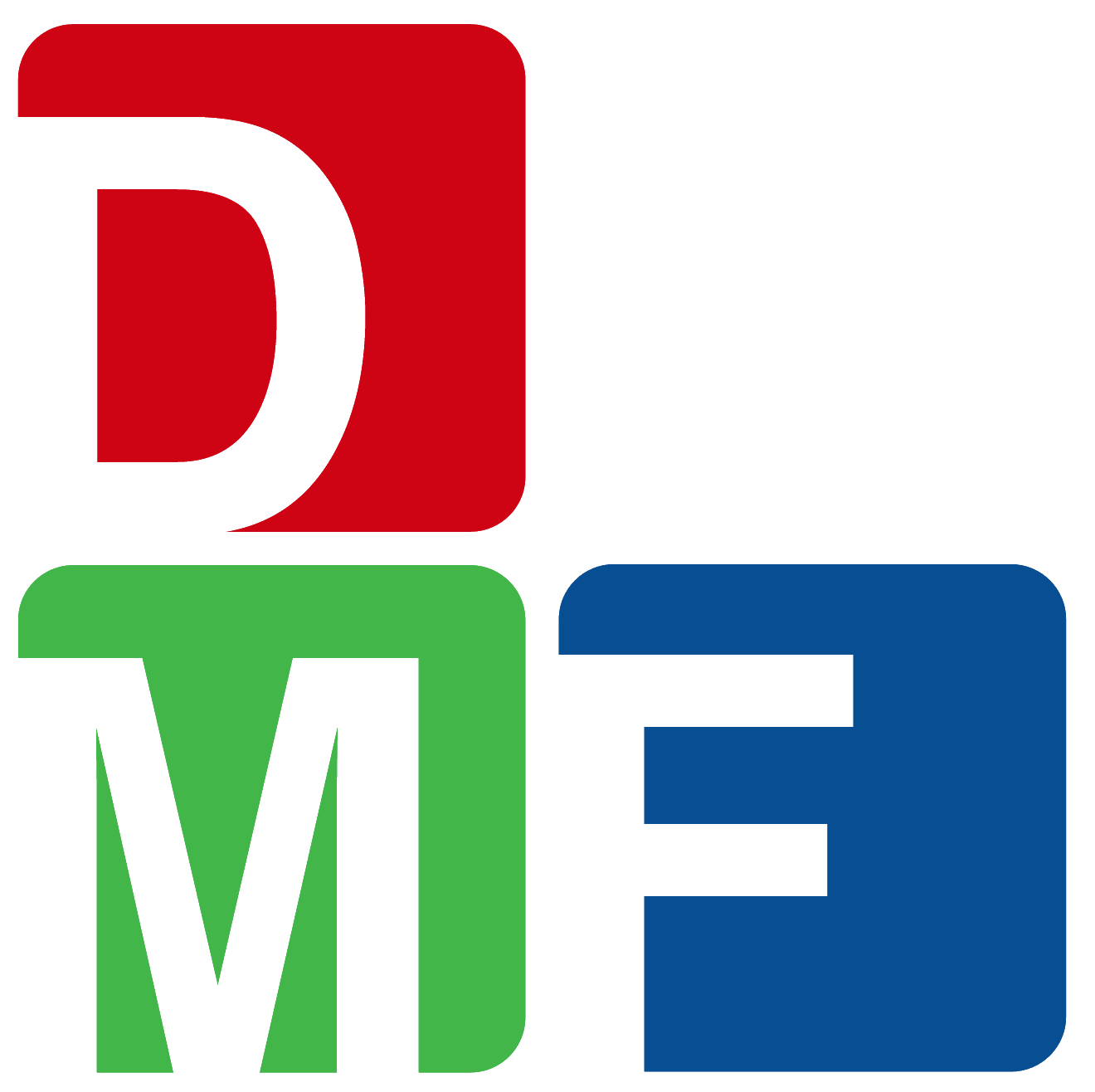Junior Seminars
A series of meetings designed to allow post-doc and Ph.D. students to present their research topics and promote collaborations.
On one Wednesday each month, a different research topic is presented in simple and accessible terms.
The seminars are designed to be attended by post-doc and Ph.D. students, but graduates and undergraduates are welcome.
Seminars are organised by Martina Miseri, Elia Onofri, and Bruno Renzi, with the participation of all the Ph.D. students.
Ph.D. courses in mathematics are coordinated by Prof. Alessandro Giuliani.
Enroll yourself or visualise the events calendar.
Future events
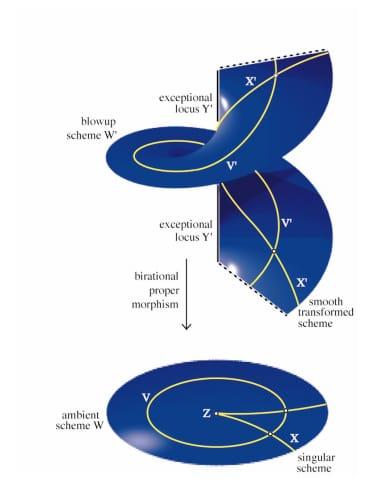
Cubic fourfolds: some rational examples
by Zakaria Brahimi
May 22, 2024 – 16:00 – Room M3
Abstract. Projective spaces are the most basic algebraic varieties that we know and rational varieties are those that are the closest possible to being projective spaces. The question of rationality of algebraic varieties has led to the development of a rich and beautiful theory and many questions are still open. Historically, the rationality problem for quadric and cubic surfaces was settled classically over one hundred years ago. In this seminar, we will talk about some rational cubic fourfolds that are known. We look for them inside Hassett Divisors; These divisors are codimension one varieties in the Moduli space of cubic fourfolds.
Past events
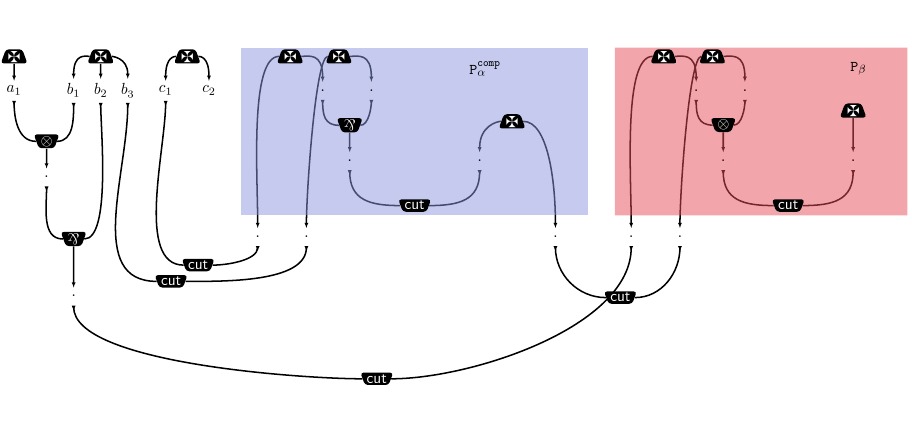
Realisability: from constructive proofs to program specification
by Adrien Ragot (Université Paris Nord)
April 10, 2024 – 16:00 – Room M3
Abstract.
In a first part - after recalling some basics of proof theory, namely what is a formal proof -
we will introduce the key concept of Realisability. The Brouwer-Heyting-Kolmogorov (BHK)
interpretation of proofs - originally formulated for intuistionistic logic - describes fundamental
properties that should enjoy proofs. In particular it implies that the space in which proofs lives
should be equipped with a product and a notion of interaction. Realisability is the implementation
of the BHK-interpretation inside an untyped model of computation - first inside recursive function,
variants of the lambda calculus and more recently in the context of linear logic in sets of permutations,
operators on an Hilbert space, or weighted graphs. We will point out how the first versions of Realisability
fall short if one wants to adopt an interactive approach and how this limit relates to consistency.
We exhibit the existing modern solutions that constitutes Interactive Realisability, briefly we expose
how interactive realisability is relevant for program specification.
In a second part, we will present parts of our current work on Realisability for Linear Logic.
We show how a simple algebraic structure, a polarized self-operand, is suited to realize
multiplicative linear logic.
We relate the problem of completeness in realisability to the correctness criterions of proof
structures for Linear Logic.
In order to study correctness, we present an algebraic framework of "path algebra" to study
the connectedness and acyclicity of a graph. If times allow we will discuss in particular how
one can handle second order quantifiers.
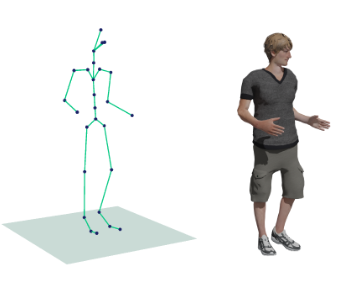
3D Human Pose Estimation: Real-time Performance and Applications
by Muhammad Usman
March 6, 2024 – 16:00 – Room 108 (Physics Dept.)
Abstract. Human pose estimation is a task that involves identifying the location of specific points in an image, usually referred to as keypoints. The keypoints can represent various parts of the object such as joints, landmarks, or other distinctive features. YOLO (You Only Look Once), a current state-of-the-art deep learning object detection model, simultaneously identifies and predicts the keypoints that define the human body's pose. In our talk, we will present a real-time 3D human pose estimation system by employing two cameras and triangulation methods to calculate the 3D pose from the 2D pose predicted by YOLO. Our results showcase the potential of the proposed method as a robust tool for real-time 3D human pose estimation. Beyond accuracy and efficiency, this approach opens up numerous possibilities across various domains, including human-computer interaction, sports analytics, and surveillance.
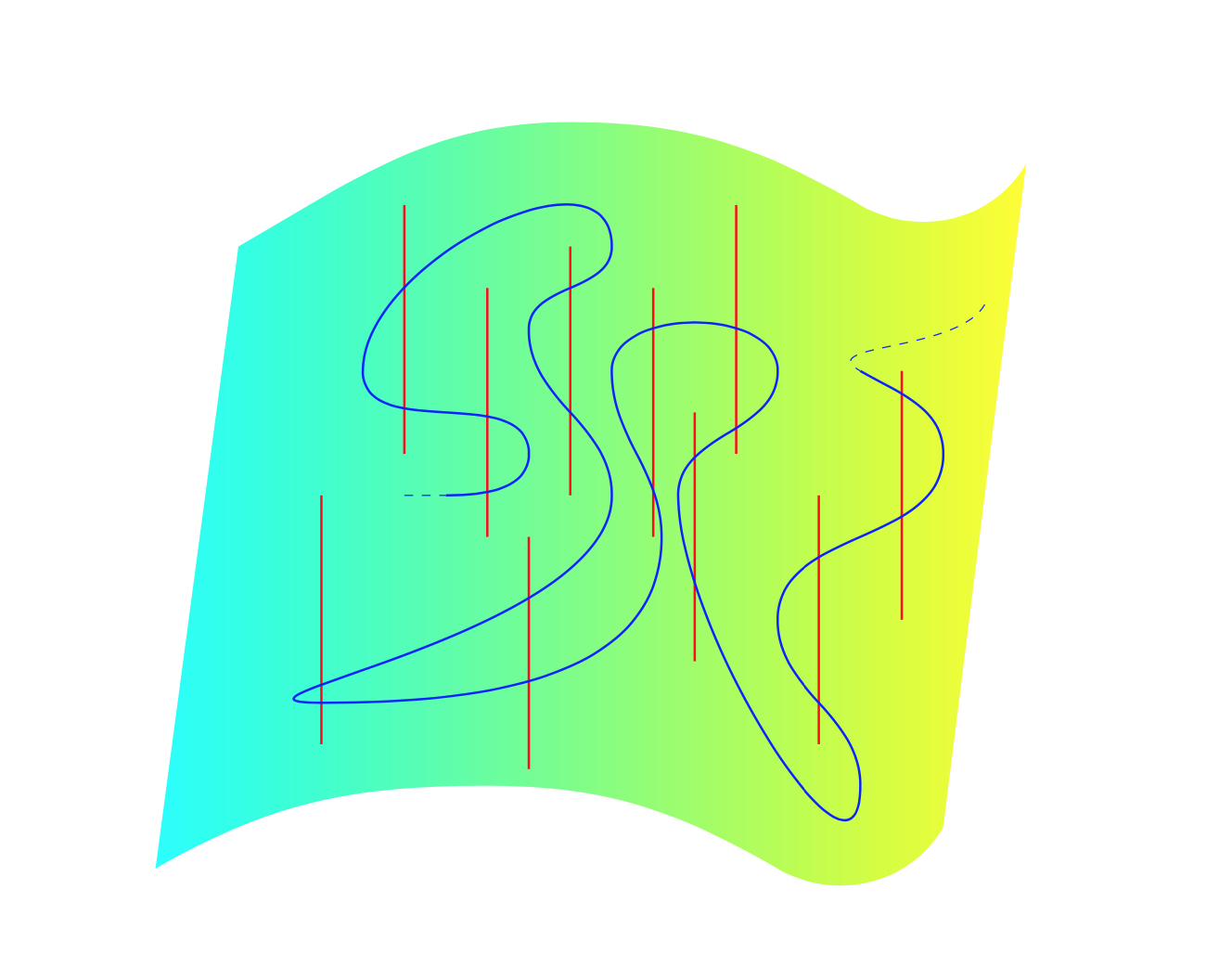
An overview on Coble surfaces, their moduli, and the Coble conjecture
by Federico Pieroni
January 31, 2024 – 16:00 – Room B (Physics Dept.)
Abstract. Since the late 19th century, a classical problem in Algebraic Geometry was to find a nice description of the group of birational transformations of the projective plane ℙ2 to itself. Coble surfaces were introduced with this aim. After a brief introduction on their definition and main properties, we will reconstruct the moduli space of Coble surfaces MCoble, compute its dimension, and show that every Coble surface X admits a distinguished Coble curve C ⊂ X. We will conclude the discussion talking about the Coble conjecture: for a fixed Coble surface X, can we find transformations φ : X → X acting identically on the Coble curve? How many surfaces inside MCoble have this property?
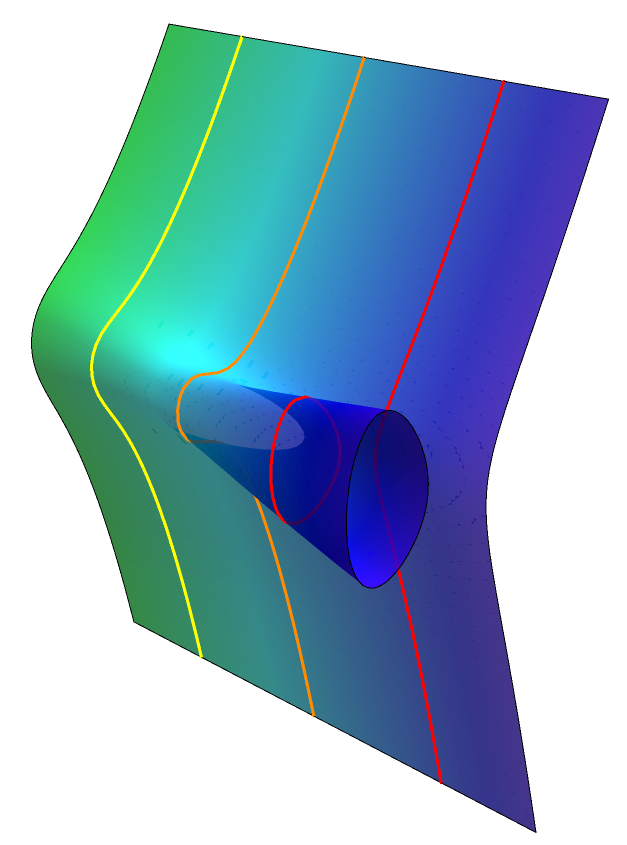
Unlikely Intersections in diophantine geometry
by Luca Ferrigno
December 12, 2023 – 10:00 – Room B (Physics Dept.)
Abstract. We talk about "unlikely intersections" whenever we have
a non-empty intersection between algebraic varieties that, for dimensional reasons,
we do not expect to intersect: for example, if X, Y are varieties
of dimensions r and s in a space of dimension n > r + s,
we usually expect X∩Y to be empty.
This expectation is the basis of many problems in diophantine geometry, which usually
study the finiteness of the number of points satisfying some arithmetical conditions
on algebraic varieties.
After an overview of some problems of unlikely intersections in algebraic tori,
we will focus on unlikely intersections in families of elliptic curves.
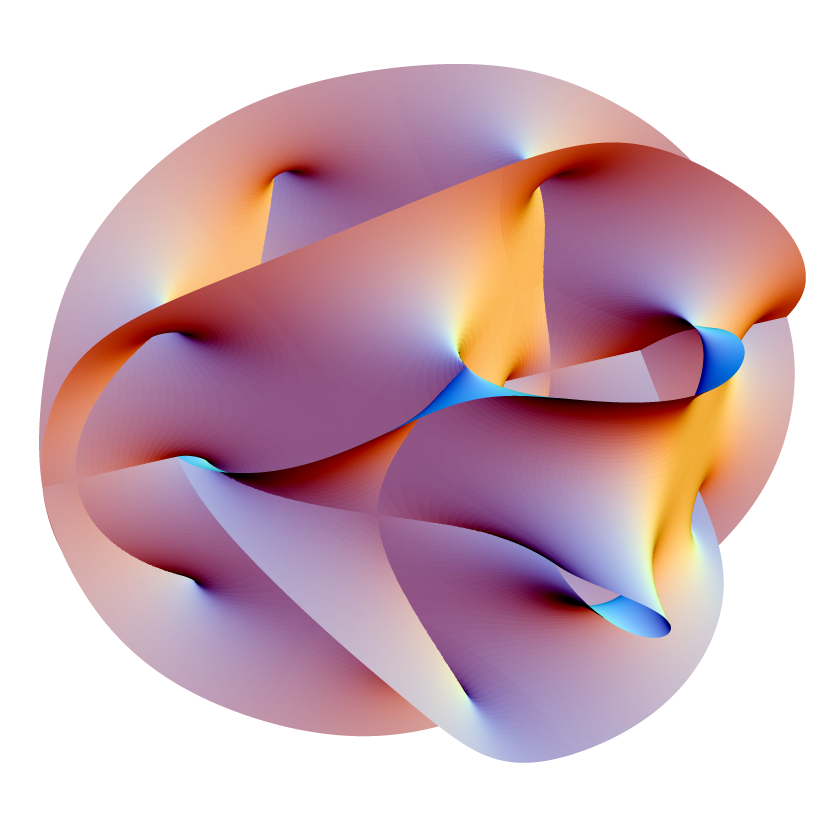
The rationality problem for the cubic fourfold
by Elena Sammarco
November 14, 2023 – 10:30 – Room B (Physics Dept.)
Abstract. One of the main open problems of Birational Geometry is to determine the rationality of the cubic hypersurfaces in ℙ5, the so-called cubic fourfolds: to date there are few explicit results and several conjectures, but no universal criteria. After an overview of the state of the art of the problem on the complex field ℂ, we briefly present a new geometric construction of a divisor in the moduli space of cubic fourfolds which could represent a significant contribution in this general discussion.
Previous editions
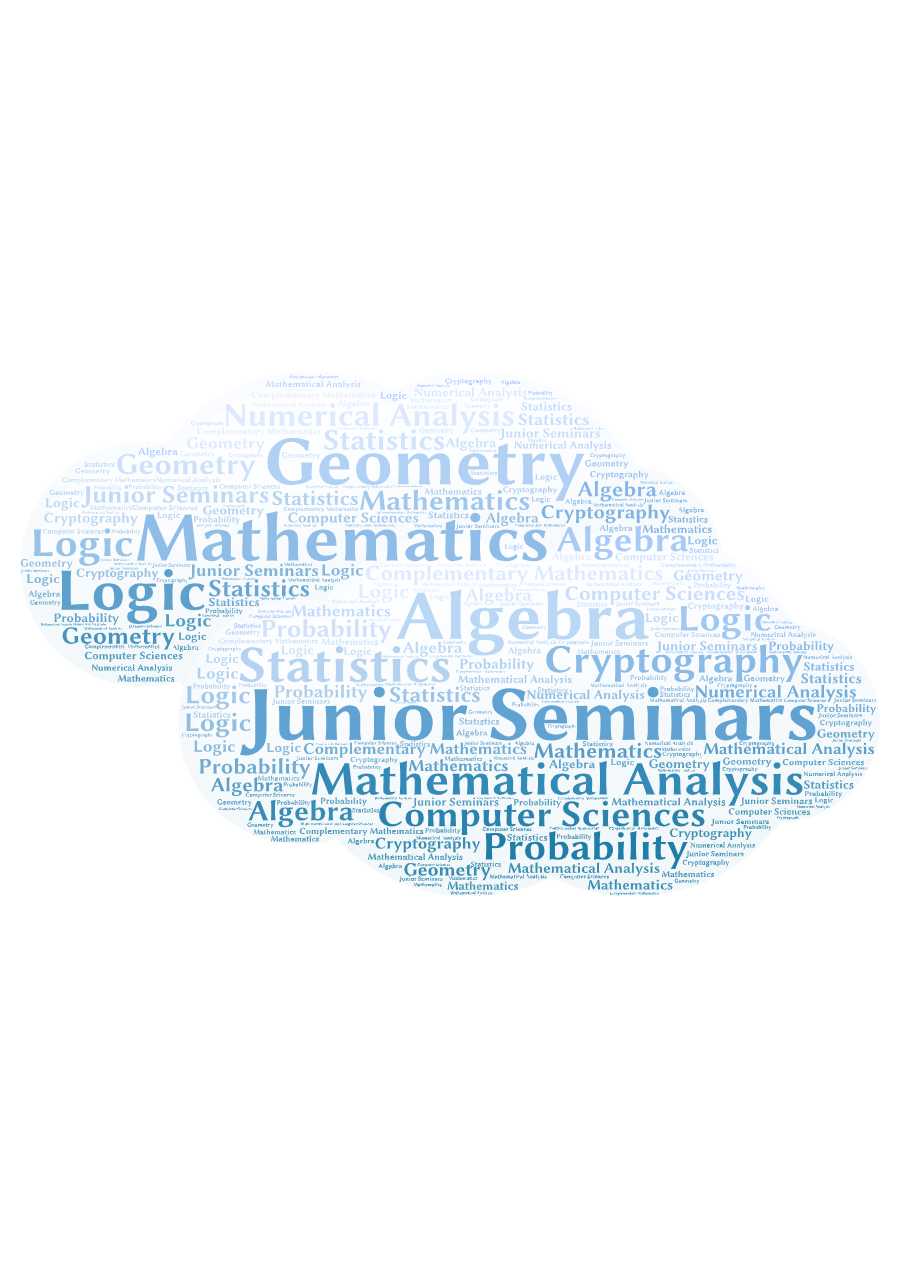
Junior Seminars
Academic Year 2022/23
Organised by
Armando Capasso and
Elia Onofri
with the participation of
Martina Miseri and
Bruno Renzi.
Partecipants.
- Armando Capasso – What is... a Higgs Bundle?
- Elia Onofri – How machine learning can improve macroscopic models for traffic state estimation and forecast
- Simone Pesatori – Coincident root loci and the moduli space of rational elliptic surfaces
- F. C. Simon Schirren – Virtual Cycles: An Introduction
- Bruno Renzi – The dimer model: phase diagram and universality
G.T.M. – General Topics in Mathematics (informal seminars)
Academic Year 2021/22
Organised by Armando Capasso and Elia Onofri
Partecipants.
- Elia Onofri – On tweakable black-box polinomials: the cube attacks family
- Armando Capasso – Numerically flatness for Higgs bundles over compact Kähler manifolds
- Luca Ferrigno – An Overview of Diophantine Geometry
- Muhammad Usman – Symbol-based preconditioning for Riesz distributed-order space-fractional diffusion equations
- Elia Onofri – Attribute-based colouring and its applications in reducing problem's size
- Armando Capasso – Algebraic hypersurfaces with vanishing Hessian and CW-complexes
- Elia Onofri – The role of the applied mathematician: optimisation of pedestrian flows in crowded museums

